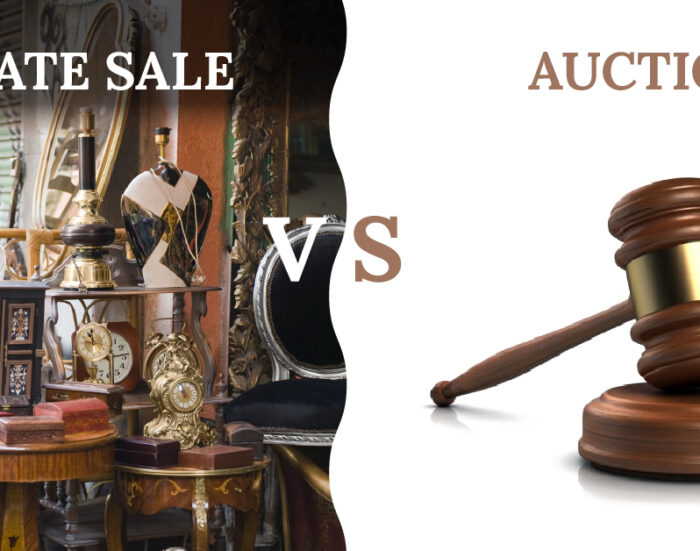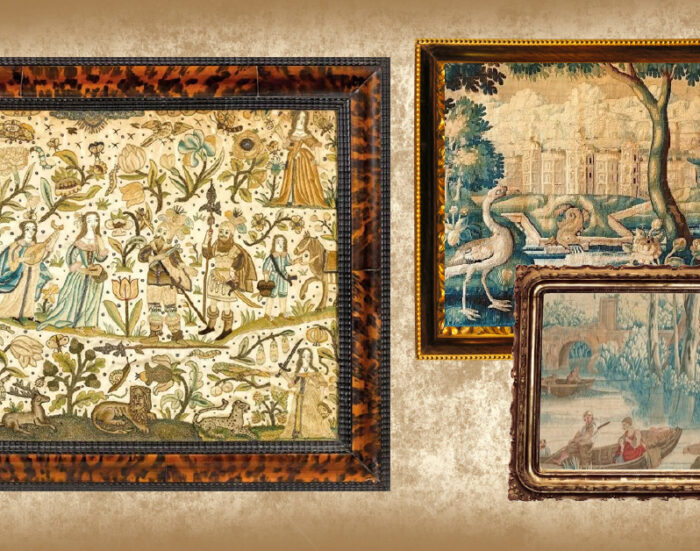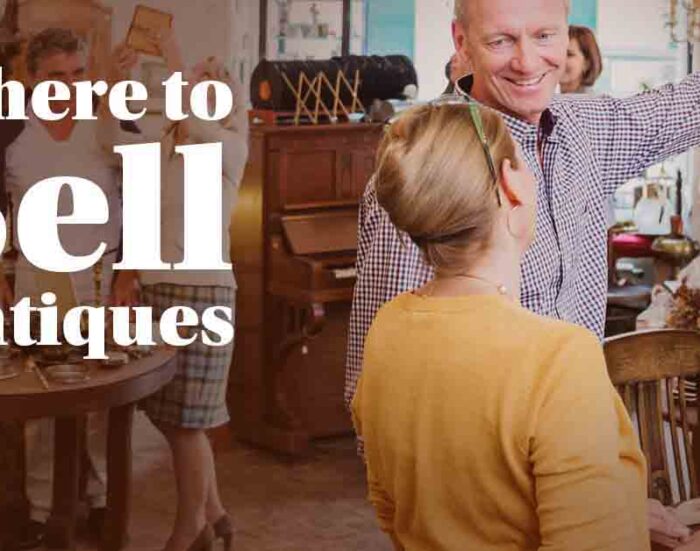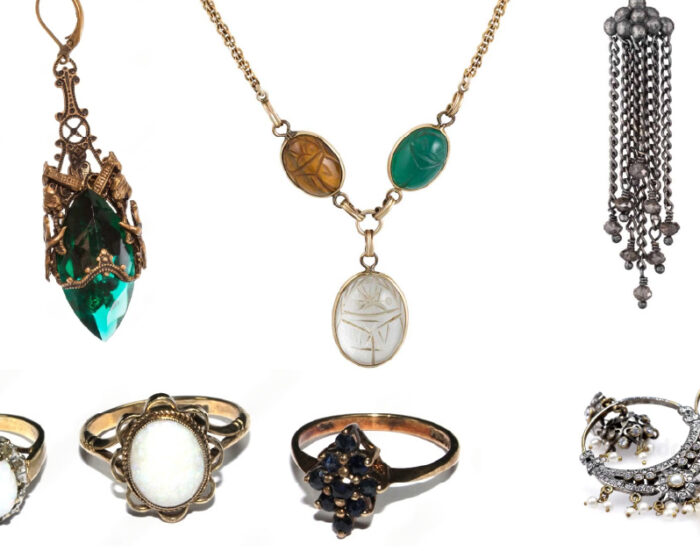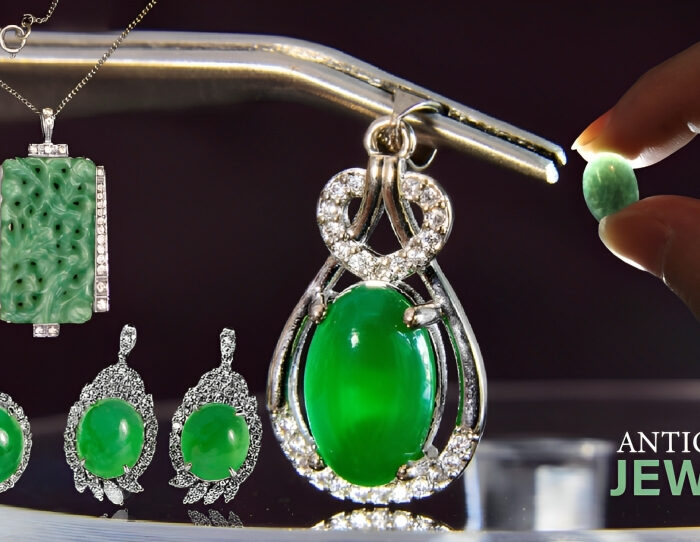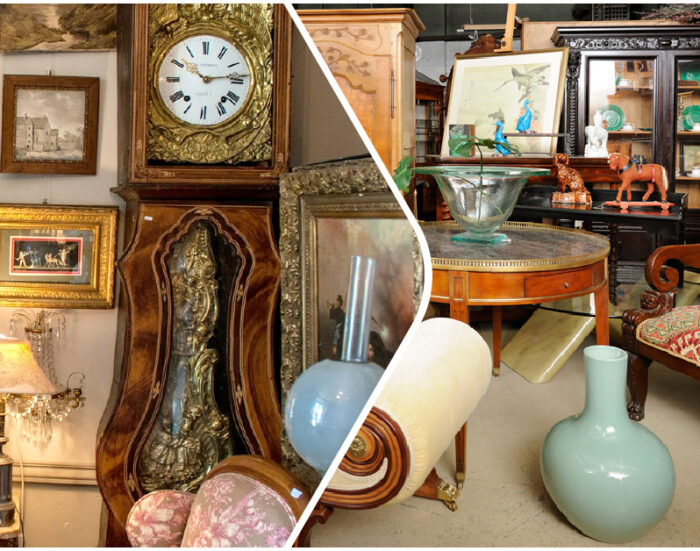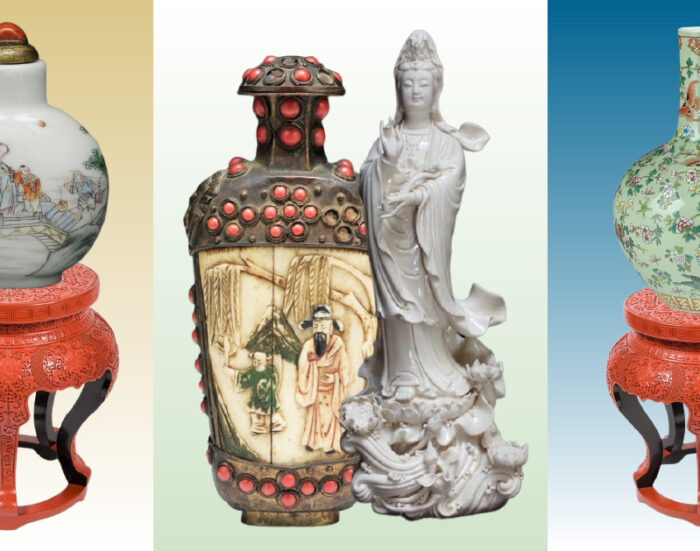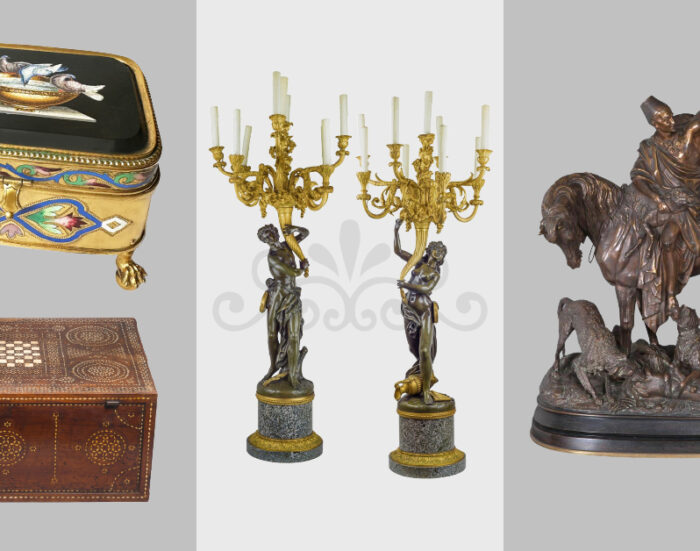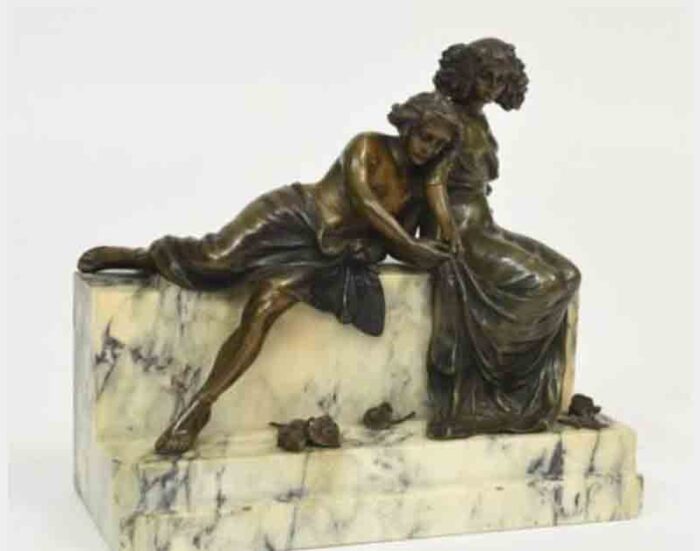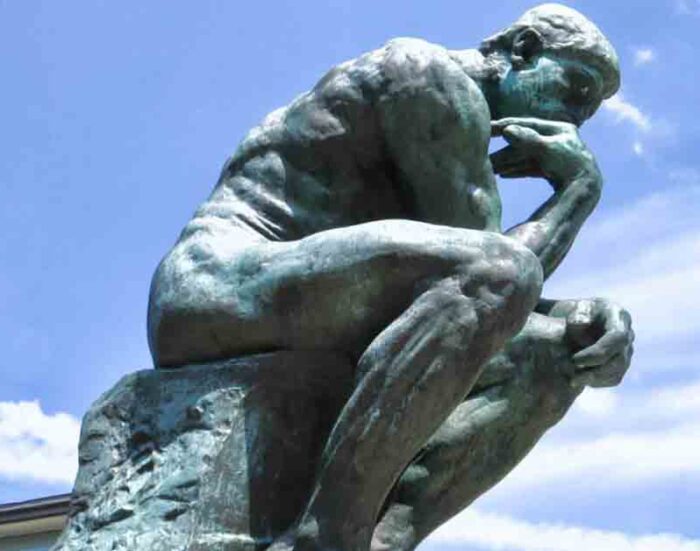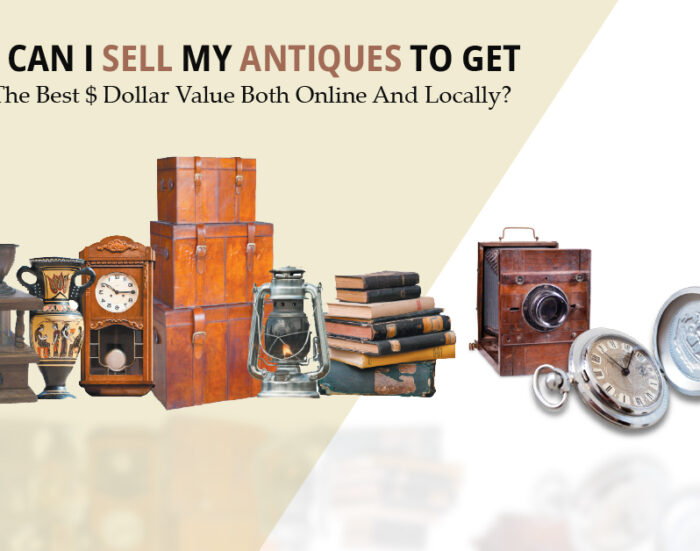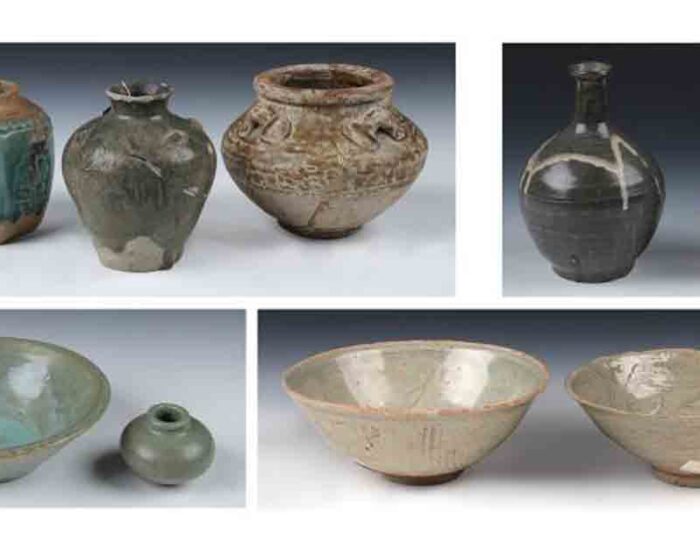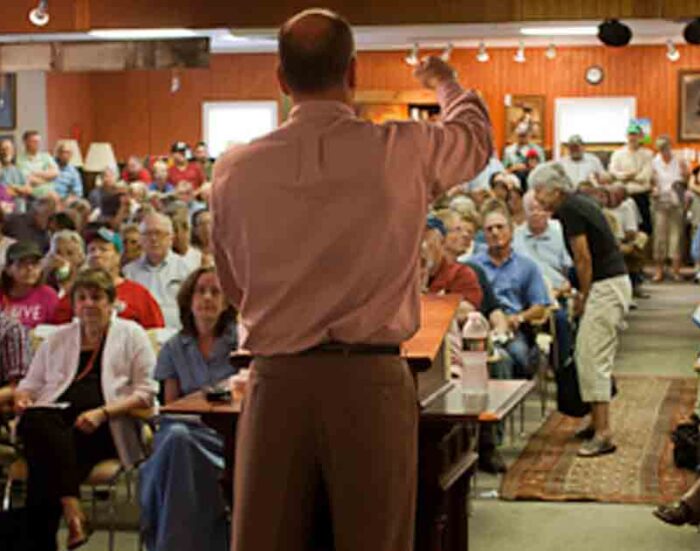What is the difference between an estate sale and an auction?
Estate sales and auctions are two unique techniques for selling property from the estate of a deceased individual. While both serve the aim of liquidating assets, they differ greatly in the manner in which they are carried out, the amount of control over pricing and length, and the entire experience for both sellers and bidders. We’re going to go through these differences in depth so you can determine which choice is best for you.
1. Pricing Control:
• Estate Sale: An estate sale is typically managed by an estate sale company or professional. In this configuration, the firm is in charge of pricing each item based on their experience and market information. Prices are often determined before the start of the auction in order to maximize the total profit for the estate.
• Auction: In contrast, auctions are conducted by auctioneers or auction companies. Here, prices are not predetermined but instead determined by the competitive bidding process. Bidders compete to offer the highest price they are willing to pay, often leading to dynamic and sometimes unexpected outcomes.
2. Duration:
• Estate Sale: Estate sales are sometimes held over several days, usually over a weekend or more. Items’ prices may be gradually reduced during this time to increase sales. It allows interested purchasers to come to the sale at their discretion.
• Auction: Auctions are relatively short-lived events, usually lasting just a few hours. Bidders gather at a specific time, and the pace can be quite fast. Bids are accepted for a brief period on each item, with the price typically increasing as bidding continues.
3. Buyer Experience:
• Estate Sale: Buyers at estate sales can take their time examining items, asking questions, and making purchase decisions at their own pace. There is often room for negotiation or bargaining with the estate sale company or individual sellers.
• Auction: Auctions are known for their competitive atmosphere. Buyers engage in rapid bidding, often responding to the bids of others. It can be an exhilarating experience for some, but it may not allow for as much leisurely consideration as estate sales.
4. Unsold Items:
• Estate Sale: It is common for some items to remain unsold at the end of an estate sale. The estate owner can decide what to do with the items that don’t sell at the estate sale. They can give them to charity, sell them to another dealer, or get rid of them in some other way.
• Auction: Auctions tend to have a higher likelihood of selling all or most of the items offered. Sellers can make sure they don’t sell their items for too little by setting a reserve price or minimum bid for each item. It means the item won’t sell unless someone bids at least that amount.
5. Fees and Costs:
• Estate Sale: Estate sale companies typically charge a commission based on the total value of the items sold. The commission can vary but is often a percentage of the sales. Sellers may also incur advertising and setup costs.
• Auction: Auctions may charge a buyer’s premium, which is an additional fee added to the winning bid. The fee goes to the auction house. Sellers also have to pay a fee to the auction house, but it’s usually part of the final sale price. The fee depends on how much the item sells for.
In conclusion, both estate sales and auctions have advantages and disadvantages. Estate sales offer more control over pricing, a longer sales period, and a less competitive atmosphere. Auctions are more exciting and competitive than estate sales. You can bid on items and try to outbid others. It can increase the worth of the items, particularly if they are valuable. You should choose the option that works best for you, depending on what you want to sell, how much you want to make, and how you like to sell. At last, it is important to carefully weigh all of these factors and maybe talk to specialists in both fields to identify the best solution for your specific estate liquidation needs.
Best Places to Sell Antique Textiles: A Guide for Textile Art Enthusiasts
Are you a textile art collector? Do you have a beautiful collection of antique textiles you plan to sell? If you answer yes to this question, then it is vital for you to discover the right market where you can get the best value.
Now, in case you are unsure about the best places to sell antique textiles, you have arrived at the right blog post. In this guide, we will inform you about this that will help you connect with vintage fabric buyers. So, let’s dig in:
Antique Textile Appraisal
-
Professional Appraisers
Opt for reliable antique textile appraisal services before you consider selling your antique textiles. Appraisers typically possess a lot of experience in textiles. So they can assist you in the best possible manner to determine the value of your pieces. As a result, you are assured of getting a precise assessment of their worth.
-
Getting an Idea About the Value
The appraisal process will help you to gain a good understanding of the historical significance, rarity, and condition of your antique textiles. Once you know all these, you can set prices confidently. Also, it will help you to negotiate with prospective buyers.
Top Destinations for Selling Antique Textiles
Below, we are going to talk about some best places which you can consider for selling your antique textiles:
-
Specialized Antique Shops
One of the best places for showcasing your collection involves antique shops that deal with vintage items or textiles. You will also find regular patrons at this place who always appreciate and look for unique pieces.One of the best places for showcasing your collection involves antique shops that deal with vintage items or textiles. You will also find regular patrons at this place who always appreciate and look for unique pieces.
-
Online Auction Platforms
Online auction platforms are another best destination to sell your collection. It’s because these platforms are known for offering a global reach. These places even attract a large number of textile art enthusiasts. You can consider listing your antique textiles for sale on leading websites that possess specialization in vintage and antique art sales.
-
Art Galleries
Many art galleries near your location are known for exhibiting and selling antique textiles. So, they prefer to add new items to their collections. You can reach out to these galleries to connect with prospective buyers interested in your antique textiles.
-
Art and Antique Fairs
Another best option behind you is to participate in antique and art fairs actively. By doing so, you get the chance to reach out to a large audience of buyers and collectors. The best part about these events is that they attract individuals who possess a genuine interest in antiques and art. As a result, it creates an ideal setting for you to sell your valuable textiles.
-
Online Forums and Social Media
Antique-focused forums, Reddit communities, and Facebook groups can be outstanding places to display antique textiles. These places will help you to connect with genuinely interested buyers.
Conclusion
Overall, selling your antique textile collection is a rewarding experience whenever you reach out to the right buyers. You should always consult a reputable appraiser or antique expert for a professional evaluation before selling your items.
It will help you to get a good understanding of the condition, provenance, and historical significance of your items which again allows you to determine their value precisely.
How Can I Sell My Antiques Fast?
Do you have a collection of special antiques just sitting around, waiting for a new home? Whether you’re trying to clear some space, raise money, or pass on your treasures to a new generation, selling antiques doesn’t have to be a big hassle. In this guide, we’ll look at simple and effective ways to sell your antiques quickly, from finding the best places to sell to creating attractive listings and getting the right price.
1. Where to Sell Antiques: Finding the Perfect Place
The first step is picking the right spot to sell your antiques. Here are a few options:
1A. Online Antique Markets
Websites like eBay, Etsy, and Ruby Lane give you access to a big audience. You can reach people around the world who are actively looking for unique items. Make sure your listings have clear photos, good descriptions, and a bit of history about your antiques.
11B. Local Antique Shops and Dealers
If you have valuable or unique items that might appeal to a specific group, consider local shops and dealers. Visit antique shops nearby, get to know the dealers, and ask if they’re interested in buying or selling your antiques for you.
1C. Consignment Shops and Auction Houses
These places can be handy if you want professional help. They know the market well and can help you set the right prices. Keep in mind, they might take a commission, but their expertise and exposure can be worth it.
2. Where to Get Antiques Appraised Near Me: Finding the Experts
Before selling, it’s crucial to know what your antiques are worth. Here’s how to find the right appraisers:
2A. Local Appraisal Services
Look for pros who specialize in the kind of antiques you’re selling. Check online directories, contact local antique groups, and read reviews to find reliable appraisers nearby.
2B. Recommendations from Enthusiasts
Talk to fellow antique enthusiasts on forums, social media, or local events. They can suggest trustworthy appraisers known for giving accurate values.
2C. Antique Shows and Appraisal Events
Keep an eye out for antique shows in your area. These events often have experts who can evaluate your antiques on the spot. It’s a great way to learn more about your items and maybe find interested buyers.
3. How to Sell Antiques: A Step-by-Step Guide
Now that you’ve found the right place and got your antiques appraised, let’s look at the steps to sell them quickly:
3A. Knowing the Value
Use the info from your appraisals and some extra research to set good prices for your items. Think about the current demand, history, condition, and similar sales.
3B. Great Listings
Whether you’re listing online or creating flyers for local shops, make sure your listings are appealing. Use clear photos that show off the antiques’ uniqueness. Write descriptions that include the item’s history, any important marks, and why it’s special.
3C. Pricing to Sell
Find a balance between getting a fair price and attracting buyers quickly. Consider competitive pricing, especially if you want a fast sale. You can also bundle items or offer discounts for multiple purchases to attract buyers.
By following these steps, you’ll be on your way to selling your antiques quickly. Remember, patience and persistence are key. Keep improving your approach based on what works, and soon, you’ll see your cherished antiques find new homes. Happy selling!
Best Places to Sell Estate Jewelry: How to Buy Estate Jewelry Locally
Are you in possession of estate jewelry that you want to sell? Confused about where to start? Tired of looking for the “best estate jewelry buyers near me?” If you answer yes to all these questions, then this blog post is designed just for you.
Through this guide, we will help you to know about some of the best places where you can approach converting your precious pieces into cash.
So, let’s get started with our discussion:
What are the Best Options for Selling Estate Jewelry?
- Auction Houses
You can consign your estate jewelry pieces to a trusted auction house specializing in jewelry sales. Reaching out to these places will help you to attain higher sale prices. It’s because auctions can attract serious enthusiasts and collectors.
- Online Estate Jewelry Buyers
You can explore online jewelry buyers who operate globally or nationwide. These websites or platforms are known for offering you much-needed convenience. It’s because you can get access to a large market of potential buyers.
- Local Estate Jewelry Buyers
Another best option behind you is to find top estate jewelry buyers operating in your local area. These buyers tend to have a lot of vintage and antique jewelry knowledge. As a result, it helps you evaluate your pieces’ actual value.
Essential Tips to Follow for Discovering the Best Places for Selling Estate Jewelry
- Do Meticulous Research
When settling on local estate jewelry buyers, you should conduct a comprehensive research. As a part of it, you need to closely examine their testimonials, ratings, and reviews, which they have received from their past sellers. You can check their experience and trustworthiness in handling estate jewelry by ensuring this.
- Check Online Reputation
Before you decide to select online estate jewelry buyers, you should check their online reputation, which is possible through careful research. It will help you to verify their track record and credibility. As a part of it, you can consider checking customer feedback and reviews to get a clear idea about their reliability.
- Compare Commission Rates
Comparing commission rates is essential if you have decided to consign your estate jewelry to an online platform or auction house. It will help you find the most favorable terms for your sale and ultimately boost your profits.
Additional Things to Consider While Selling Antique Estate Jewelry
- Professional Appraisal Services
Opting for professional appraisal services, which qualified jewelry appraisers typically offer, is recommended. Following this step is vital before you sell your estate jewelry. With this aid, you could know the actual worth of your pieces.
- High-Quality Photographs
You should never overlook the importance of high-quality photography to get the best prices. As a part of it, take clear and best-quality photographs of your estate jewelry. It will help you to showcase its beauty and details in the best possible manner. Ultimately, it will attract prospective buyers. It also helps you to stand out in the market.
- Preserve Originality
If your estate jewelry has original documentation, certificates, or packaging, you should keep those intact. These elements will help you receive the best value while selling your pieces.
Final Words
Now, more than half of your job is done. It’s time to connect with the right buyers and find the right platforms for selling your precious asset.
We are sure you have found this discussion to be insightful!
How Much Does Jade Sell for at Its Best Price and How Can I Appraise It?
Jade – The vibrant green gemstone is separated into two different types: jadeite and nephrite. These highly durable and stunning minerals has 6 main factors that make it extremely valuable.
Color, transparency, texture, clarity, craftsmanship, and artistry are the factors every jade appraiser examines to retrieve an accurate value.
However, the value depends on such factors; if your grandfather’s jade weapon fulfills those criteria, then it can reach a sky-rocketing value.
To make your search easy and effortless, we’ve penned down tried-and-true solutions to the topics. Let’s roll out…
Where can I sell jade for maximum profit?
There are many ways to sell your jade item, and a few of the best ones are listed in this blog post. As you know, jade is considered one of the rarest and most expensive gemstones in the world.
So, the following are the places where you can deal with jade items:
- Social Media:
In this digital-oriented era, everyone is seen doing their stuff digitally. The maximum time they spent bingeing on social media is a green flag for the sellers out there. From buying to selling, everything can be seamlessly done on social media sites such as Instagram, Facebook, Youtube, etc.
To sell Chinese jade artifacts via social media, you can make reels, stories, or posts to reach your target audiences worldwide.
- Online dealers:
You can surf the internet to search “best jade buyers near me,” and you’ll see the websites of the dealers showcased on the Google page. You can select any one of them by checking their reviews, certifications, and experience.
By following the process of connecting, you can get in touch with the buyer and have a deal that satisfies your expectations.
- eBay and Etsy
These are the largest antique marketplaces where dealers and collectors safely buy and sell jade artifacts at sky-high prices.
If you’re willing to sell your inherited jade jewelry, you can list it on eBay or Etsy and find a reliable buyer.
Remember to be cautious about whom you’re choosing as your dealing partner. Choose wisely!
- Thrift stores:
You can find any reliable thrift store online or offline. They do not offer the highest price, but if you think you can make an impact, go take a chance!
Who buys Chinese jade?
We at Antique Appraiser Auctioneer buy jade items at top dollar. By being Florida’s largest and most well-established auctioneer, we also conduct auctions occasionally and appraisal sessions for antique and collectible lovers out there!
If you have white or natural green jade statues or other ancient artifacts and are seeking “where can I sell jade?” you can rely on us and have the best-ever customer experience. Connect with us today!
Shining off!
Last but not least, the information you’re reading was revealed by a professional who has decades of experience in the gemstone dealing industry.
Thus, if you’ve got any questions regarding the topic, you can get in touch with our team of appraisal experts or check out our other blog posts as well.
How to Sell Antiques Online: 5 Pro Tips for Making Money from Antiques
Dealing with antiques comes from the previous era, i.e., it was first started in the Renaissance period. But since there were no shops or other options to sell or buy antiques, people used to trade them independently. Previously, these antiques came mainly from Greece and Rome.
Now, it has been spread all over the world, especially in Florida, which has become the largest antique dealer in the industry of trading ancient pieces. Selling antiques has become an easy way for people to make money. People are also opting to sell their pieces through online sources too. The best thing is that these pieces are being sold at the highest price.
The main question that arises here is where to sell antiques near me or online. Who buys antiques near me or online? Should I sell my antiques on the internet or at a local antique shop? If you’ve recently discovered something important in the attic and want to sell it, these are the first few questions that come to mind. Here, we will discuss five useful tips regarding how to sell antiques online:
#1 Website for Selling Antique Collections Online
- Flea markets: Flea markets are also an excellent location to sell your antiquities. Because these markets often only deal with older items like antiques, they might be less time-consuming than charity shops and estate sales.
- Auctioneers: Auction houses are the ones in which dealers and collectors deal by auctioning for the highest price for old items. Selling to the auctioneer online can be a good option. But, also keep in mind that you should have that old piece that holds actual ancient history, plus you should have great information about its condition too. So, that the result will be in your favor, i.e., a win-win outcome.
- Ebay & Etsy Online Store: These platforms spend a lot of money to attract ready-to-buy clients to their sites, which you can then use to generate sales. Online marketplaces often offer higher transaction fees on every sale you make in return for the value. Online market stores may be the best option for selling your belongings to a large number of authorized dealers.
- Digital Stores of Antique Dealers: Where can i sell vintage items near me or online? There are a few trusted antique dealers and traders of antiquities who are willing to buy your pieces by offering expected returns and also offering free appraisals through which you can easily learn about your antique history and its worth.
#2 Who are the dependable buyers, and what credentials should they possess?
- A dealer should have perfect knowledge of ancient pieces and their history.
- They should be good and experienced appraisers too.
- Every antique dealer should have a license and be certified by the Gemological Institute of America and have authorized dealer certificates too.
- Their reputation should be very good, i.e., their business should be honest and trustful in the market.
#3 Maintain a clear and descriptive image and information about antiquity.
Before selling your pieces, try to get an HD photo and also add the proper information. so that it will be easy for the buyer to know its real worth, style, and history.
Tips for Taking Photos and Including Descriptions
The best way to take a picture is to click on a white background and flash a light on the piece, which will make it perfectly clear for the buyer to understand all about the old piece. And, the description should include history, dimension, age, usefulness, and condition.
#4 Obtain Information Through Appraisal (Very Important)
It is really very crucial to know about each and every detail of your antiques, so that it will be easy for you to know about their real worth and condition. There should be a proper appraisal of your heirlooms by an experienced appraiser. This will help you to collect proper knowledge. The real question is, where to search for an appraiser? There are too many reputed appraisers in the online world too, who offer free and hassle-free evaluation services. It would be best for you to be updated about your valuables before selling them.
# 5 Participate in Social Media
Being active on social media like Facebook, Instagram, etc. has also become a main source of business. Many dealers are present socially and are looking for sellers to sell their collections. But before trusting them, do deep research about them and learn about their authorization and honest sales. Thoroughly, look after every credential a dealer should have to deal with antiquities.
Enjoy the Benefits of Honest Heirloom Sales in the Online World!
Simply follow these best ways to sell antiques and you’ll be a part of an easy sale as well as the online world. Get the money you deserve from your possessions without putting in any extra work. Plan the most effective marketing approach and learn everything which is to be known about your antique collection.
Examining the Future of the Chinese Antiques Market
For many years, there was a steady and growing market for Chinese antiques. This was fueled by Chinese antique buyers who came from the newly wealthy class in Asia and the West. It was also fueled by rising worldwide interest in Chinese culture, which prompted art collectors all over to buy Chinese antiques. However, in the past few years, there has been speculation that the boom in Chinese antiques is coming to an end. This is not surprising, as factors such as a cooling of the Chinese economy, the global pandemic, and rising political tensions lead people to think that it is inevitable that Asian antiques buyers will sour on Chinese antiques. In this article, we will look at whether the boom in Chinese antiques is coming to an end.
Signs the Chinese antiques market might be slowing down:
In 2019, the Global Chinese Art Auction Market Report indicated that sales of Chinese art and antiques reached $5.7 billion dollars for the year. This staggering figure shows the buying power of Chinese antique buyers, but it was down 10% from the previous year. Total auction sales in mainland China also fell by 10% that year. Sales of Chinese art and antiques were also down by 9% outside of China during that period. However, that doesn’t mean that you should not buy Chinese art and antiques.
Why we buy Chinese Antiques:
Don’t pass on that piece of Chinese art or that Chinese antique yet. If you come into possession of a Chinese antique, don’t just give it away or throw it out. There is still major demand for Chinese art and antiques out there. Discerning Chinese antique buyers are still willing to pay top price for authentic pieces. All of the six most expensive Chinese art pieces were sold by Sotheby’s Asia in 2019. Also, in July of 2019, a Chinese vase that was originally purchased for fifty pounds was sold for $9,084,486! Never underestimate the appetite of Asian antiques buyers for genuine Chinese art.
Don’t underestimate the Chinese economy either. China still has a strong GDP, massive industry, and financial capital. It regularly competes with the United States to have the world’s largest economy. This translates into a growing middle and upper class with the wealth and interest in art, becoming frequent Chinese antique buyers.
In addition, there is a constant fascination with Chinese art and antiques in the global market. This enduring interest goes back centuries and has led to a huge market of Chinese antiques and artwork around the world. It also means that Asian antique buyers continue to take an interest in the global art market as they search for Chinese antiques.
Online is a great place to buy and sell Chinese antiques:
The digital age has continued to transform buying and selling art, particularly after COVID. Many of the up-and-coming wealthy Chinese antique buyers are young. They are driving the increasingly popular online auctions and buying and selling antiques online. At antiqueappraisersauctioneers.com, we can help you get Chinese antiques appraised for the best possible value and both buy and sell Chinese antiques online.
In conclusion, while there are indications of a potential slowdown in the Chinese antiques market, there are still compelling reasons to consider investing in Chinese art and antiques. The enduring demand from discerning Chinese antique buyers, the strength of the Chinese economy, and the global fascination with Chinese culture contribute to the market’s resilience. Furthermore, the digital marketplace provides convenient avenues for buying and selling Chinese antiques. Therefore, it is premature to write off the future of the Chinese antiques market.
What is Textile Art and Where to Sell such Artworks?
Textile art is the oldest form of artwork, dating back thousands of years. It involves using synthetic fabrics, plants, threads, and other materials to create beautiful masterpieces. Throughout history, textile art has served as a decorative element on various objects. Techniques like embroidery, knitting, and weaving are examples of this art form. Ancient Egyptians initiated this form of creativity, and it can still be observed on clothing and objects in China. Today, textile art can be found on rugs, military uniforms, flags, clothes, and more.
To explore how to sell textile art, let’s dive into a conversation between Amanda Moore, a customer interested in selling her inherited fabric art, and John Martin, a textile art expert.

Amanda: Hi John! How are you?
John: Hello Amanda, I’m doing great. How about you?
Amanda: Yes, I’m doing well too. I have a few questions. Can you guide me on how and where to sell textile art to get the best value for it?
John: Certainly, Amanda. I’d be happy to help you with your concerns. Let’s get started!
If you are unsure about the places where you can sell your textile art, there are a few steps you can take to find the right avenues:
Begin by exploring the internet and searching on Google for the “best places to sell textile art.” This search will yield multiple antique stores that purchase such objects.
Ask people close to you if they know any trusted art buyers in your local area.
These steps are applicable for in-person selling. If you are interested in selling online, there are several options available:
#1. eBay and Etsy are two trusted antique marketplaces where you can list your textile art. Follow the listing process on these platforms. Here, you can find antique art dealers and enthusiasts who purchase rare objects at high prices.
#2. Online antique stores often have their websites where you can contact them and proceed with the selling process according to their guidelines.
#3. Social media platforms like Instagram, YouTube, and Facebook are excellent avenues to showcase your textile art to a wide audience. Create reels and short stories, discussing everything about your textile art and inform people that it is available for sale.
Remember, Amanda, if you are venturing into the world of antique dealing, it’s crucial to have a good understanding of the current market prices, which antique pieces are in demand, the condition of your artwork, and more. This information will guide you towards a safe and secure transaction.
Amanda: Thank you, John, for providing such detailed information. I have one more question that requires clarification. How can I assess the condition of my textile art and gather other relevant details?
John: This is an essential question, and everyone should be aware of it. Before visiting an antique buyer, you should consult a textile art appraiser. An appraiser will help you determine the right price, assess the rarity of your object, evaluate its condition, verify its authenticity, and provide information about its history and origin. Such details are crucial for ensuring a successful transaction.
Amanda: Oh, I see! This information is invaluable in ensuring a profitable sale of textile art. It was a pleasure speaking with you, John. Goodbye!
Winding Up!
I hope the conversation between John Martin and Amanda Moore has helped to clear your confusion as well. Keep in mind the warnings and additional advice given by John regarding selling textile art. I look forward to sharing more useful information with you in the future.
Where to Buy and Sell French Antiques?
One of the great ancient finds! French Antiques. Have you ever heard or seen such items in your surroundings? Imagine you’re just exploring the market and suddenly you see an antique store. You found a very rare and beautiful masterpiece inside the shop. Your eyes are continuously watching the piece and thinking, “Wow!” That’s something I’ve always wanted.” Isn’t it happens often times?
This was a sudden coincidence that you found a shop, but if you don’t have an idea about places that buy or sell French antiques, then read this article to find out.
Before buying French furniture or statues, you need to do some research to discover what makes such pieces valuable and rare. So, let’s first discuss these things…
What qualities make French antiques highly valuable?
The grace, standard beauty, unique wood carvings, and durability make French furniture and other collectibles of great value. Not only this, but there are more factors that affect the values. Let’s talk about them…
Century: In the current market, it has become impossible to see original 18th-century French furniture. This is because of its rarity and utmost value. One of their qualities is their scarcity, which makes them demanding and expensive.
King Louis XIV: The antiques from Louis XIVs France became the most desirable and popular items. People used to buy such pieces due to their elegance, designs, and craftsmanship, and people used to love to decorate their homes with them.
Overall, antiques with great history, craftsmanship, rarity, age, and origin, especially those from the 18th century and furniture from Louis XIV, are marked as highly valuable antiques.
The best place to buy and sell French furniture
We at Antique Appraiser Auctioneers buy and sell every type of antique from France. If you possess such ancient items in your attic and want to sell them, we buy antiques at a premium price. Furthermore, we also sell rare items that you would love to buy to accessorize your home. In addition, our appraiser also offers an honest and reliable antique appraisal service.
Here are a few french antiques for sale:
- Bronze French-Russian Arthur Waagen
- Monumental French Bronze Candelabras
- Rare And Important French Marble Top Sideboard, With A Vatican Shop Micro Mosaic Plaque
Conclusion
A interesting and satisfying lifelong passion is collecting antiques. Always purchase the highest quality you can afford and the items you are interested in, whether you are purchasing antiques for a collection or as an investment.
Watch out for furniture that is occasionally labeled as antique but is actually a more contemporary replica from the 1920s to the 1950s. These can be more challenging to identify; you’ll need some expertise and close observation of the artwork.
Which Antiques offer the best e-value and can be sold online?
Know which antiques offer the highest value when sold online and can be effectively marketed through antique appraisal, auctioneers, or antiques and collectibles?
In recent years, the online medium has provided antique enthusiasts with a platform to buy and sell antique items online, which has caused an increase in demand for items with the highest e-value that can be sold online. Antique items are greatly sought after because of their age, rarity, and historical significance.
The Tiffany Studios designed the highly collectible antique item, the Tiffany lamp, in the late 19th and early 20th centuries. These lamps are renowned for their stained glass shades that feature intricate patterns and designs. Boudoir lamps and mosaic lamps with reverse painted shades are among the most popular types of Tiffany lamps. Handel lamps, which also feature reverse painted shades, are another popular type of antique lamp.
Tiffany and Handel lamps typically include miniature boudoir lamps and mosaic lamps with painted artwork on their shades. Handel lamps are well-known for their distinctive feature of reverse painted shades. These shades may have metal overlays in diverse patterns and lovely colors, while some lamps have metal bases or marks on their shades.
If you are interested in buying or selling antique Tiffany lamps, it is advisable to visit antique appraisers auctioneers who specialize in these items, as well as Handel lamps and other quality antique and vintage lamps. These specialists can generally offer a better price compared to dealers who handle all antiques and may not have expertise in lamps or could be into scrapping antiques.
Patek Philippe, a Best Seller Since Ages…
Patek Philippe SA, a Swiss watch-manufacturing company, creates some of the most prestigious watches in the world.The company’s selection of watches is inclusive, offering a diverse range of options suitable for individuals of any gender, be it male or female. Patek Philippe SA is particularly renowned for producing the most complicated mechanical portable timepieces, including stopwatches and wristwatches, which showcase the exceptional expertise and skill of the world’s top designers and watchmakers. Patek Philippe watches are listed among the world’s top five most expensive watches and are highly sought-after by the elite. They are considered to be worth every penny spent.
How Can a Professional Antique Auctioneer Help?
Skilled professional auctioneers sell antiques through auctions, where they accept bids and facilitate the transfer of ownership to the new owners while ensuring legal compliance. Professional antique auctioneers are licensed and equipped to ensure that antiques are transferred to new owners lawfully. A catalogued listing of the items for sale is typically provided to all attendees at the start of the auction. In addition to being specialists in evaluating antiques, professional antique auctioneers must have knowledge and appreciation of antique pieces, examine them to evaluate their age, condition, origin, and quality, consult with experts and historians, and ensure the authenticity and proof of ownership of each piece. They also maintain records of all pieces that go through their auctions. As knowledge is crucial in the auction business and fairness to all participants is the goal, professional antique auctioneers must conduct extensive research prior to the auction. Before choosing an auctioneer to sell antiques, sellers should attend at least two auctions conducted by the auctioneer to verify their talent.
Tiffany and Cartier Jewelry
The Tiffany and Cartier Jewelry brands are among the two most prominent brands in their own right, and buyers are often confounded as to which to choose. While Tiffany has been in the market longer (over decades), it started off as a silverware manufacturer before branching out to jewelry, unlike Cartier, which started out as a jewelry maker. As both companies produce similar product types, buyers’ choices tend
Know Famous Artists & Sculptors through their Masterpieces
It is commonly said that “by their works you shall know them.” Below is a brief summary of some of the greatest artists and sculptors and the distinguishing features of their works that identify them.
Van Cleef and Arpels jewelry
Founded by Alfred Van Cleef and Salomon Arpels, Van Cleef and Arpels is a high-end French luxury jewelry, perfume, and watch company. Noted for including animals, fairies and flowers in their intricate designs, Van Cleef and Arpels jewelry has through centuries made a name for itself through its numerous groundbreaking achievements like winning the grand prize at the International Exposition of Modern Industrial and Decorative Arts in 1925, making the emerald velvet set crown of Empress Farah Pahlavi for her 1967 coronation and receiving the patent for the “Mystery Setting” which requires over three hundred working hours apiece.
Deco Jewelry Buyers
Reported to have emerged in 1925 in Paris, France, the Art Deco (from “Exposition Internationale des Arts Décoratifs et Industriels Modernes”) style lasted about a decade and is till date one of the most popular jewelry (antique) styles. Also known as the “white gold” art, original Art Deco jewelry were manufactured in the time frame between both World Wars. Like with every other buyer, the Deco jewelry buyers search for some unique distinguishing features when assessing their pieces. Some of these features include:
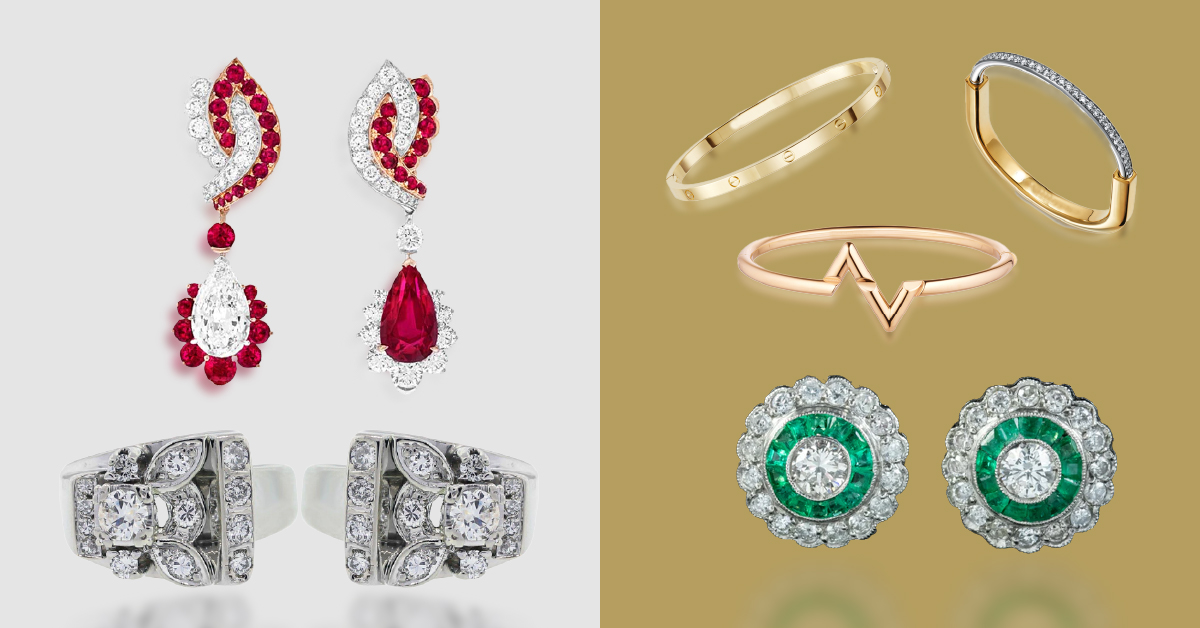
- Antique cushion cut, Asscher cut, old European cut, or transitional cut diamonds.
- The use of platinum or white gold.
- Geometric and symmetrical design minimizing the free space and having a more industrial feel.
- The use of caliber cut stones to specifically fit into the jewelry design.
- The use of 10k or 18k white gold to do filigree work (small, intricate cut-outs incorporating lots of diamonds, platinum, synthetic stones, and white gold.
Tiffany, Cartier Jewelry buyers
The Tiffany and Cartier Jewelry brands are two prominent brands in their own right and buyers are often confounded as to which to choose. While Tiffany has been in the market longer (over a decade), it started off as a silverware manufacture before branching out to jewelry, unlike Cartier which started out as a jewelry workshop. Because both companies produce the same product types buyers’ choices tend to go beyond the available and may involve their emotions. For instance, having been raised in a home where one’s parents and older siblings purchased Tiffany engagement rings, one may lean towards a Tiffany purchase. On the other hand, in this same setting, one may resort to Cartier Jewelry because they wish for “something different” considering that their qualities are all worthwhile.
Estate diamond buyers and Trusted Antique Buyers
Like with every other deal, finding and choosing estate diamond buyers and trusted antique buyers should depend on aspects like:
- Peer recommendation of antique buyers they have used before.
- Finding a buyer who is fair and trustworthy; far enough to pay you the worth of your jewelry and trustworthy enough to see the sale through.
- The qualifications of and the level of familiarity with the product the buyer has. It is important that the buyer be knowledgeable of the product lest they accuse you of selling a fake.
- Your ability to communicate with and trust the buyer until the sale is completed.
Where Can I Sell My Antiques to Get the Best $ Dollar Value Both Online and Locally?
It’s a question almost as old as the antiques themselves – where to sell antiques for the most profit. Whether you are a frequent antique seller or have been gifted your Great Aunt’s vintage jewelry collection, if you’re selling antiques, you’ll want to know where the best place is to do so.
Where to Sell Antiques
One of the most common ways of selling antiques is to visit a local antique store. To find a store, conduct an online search for “antique buyers near me” or “antique dealer near me”. You can check your local phone directory or look in classifieds in the newspaper if you have those things.
Another option for selling antiques is to find a buyer online. Search for “where to sell antiques” and you’ll most likely be flooded with online buyers. Narrow your search down by sifting through to see what buyers stand out to you and go from there. You can also specifically go through one or more of the online platforms as outlined below.
Selling Antiques Online
If you’re searching for where to sell antiques online, you won’t have to look very far. While the art market as a whole was down considerably last year, the sales of antiques nearly doubled and thousands of those sales were conducted online.
Dealing directly with an antique buyer, individual or business, is a popular approach. Simply contact the buyer using the information you’ve pulled up online. Find out the steps to take such as sending a photo of your antique and go from there.
To sort out online antique buyers, do your homework. Make sure the buyer has a good length of time in business and that they have great feedback from prior customers (especially on third-part sites), and that they have a stable online presence.
There are platforms you can go onto in order to sale your wares such as a seller rather than simply looking for a buyer for your items. Craig’s List, Ebay, Amazon, and Etsy are good examples of places you can sell from, especially if you have more than a few items.
Selling Antiques Locally
Where to sell antiques has been a topic of concern for as long as antiques have been bought and sold. Many people prefer to conduct the business transaction in person.
Buyers Near Me
If you are one of them, begin by locating a place by searching online for “buyers near me,” “antique buyers near me,” or “antique dealers near me.” Then, get in touch with the buyer by calling, messaging or emailing, or dropping by in person.
Once you have made the initial contact, assess how you feel about the individual or company selling antiques. If you get a good feeling about it, proceed. If not, move on. Don’t forget that it’s a good idea to get more than one appraisal. Quotes can vary greatly.
Other Options for Selling Your Antiques
If you want to independently sell your wares, you can advertise it (or them) in the local online section online. Neighborhood groups or online yard sales in or around your location are excellent sources.
You can also have a garage or yard sale at your house or rent a spot at a local flea market. If you only have one piece or just a few, you may want to take it to a seller who has a booth at a flea market.
Selling Antiques
Selling antiques is a lucrative business for those who follow the steps to help ensure transactions are safe and profitable. Who knows, you may find you do so well you want to start your own business buying and selling antiques.
Where Can I Sell My Chinese & Asian Antique items?
Chinese antiques are intriguing. Through the years, many have become interested, and even obsessed, with collecting them. They are addicting! But, there may come a time when you are ready to sell your Asian antiques. If so, there are some things you should know, especially if you live in the state of Connecticut.
Have you inherited Chinese antiques you’d like to sell? Perhaps you’ve been collecting Asian or Chinese antiques for years and are ready to liquidate. Maybe you have run into a financial hardship and are being forced to sell your treasures. Or, you may have lost interest in your once beloved antiques and simply want to get rid of them. No matter what your particular situation is, you’ll need to decide where to sell Asian antiques to get the most profit possible.
Local Antique Dealers
Antique buyers are not all honest and reliable. Some are out to give you the least amount of money possible for your antiques. When you are selling Chinese antiques, finding Chinese antique buyers can be even more challenging.
If you live in Connecticut or will be in the Connecticut area, check for listings online of dealers in the vicinity. Find out how long the dealer has been around and be sure they have an online presence and plenty of verifiable references. Also see what credentials they hold. You can’t be too safe, even when the dealer is local to Connecticut.
Finding a local dealer will help ensure you won’t get stuck out. There are shady dealers who act as if they are experienced Chinese antique buyers, but they give you far less than your Asian antique is worth. Or, they take your item and run. That’s why it’s imperative to find a dealer and appraiser in Connecticut if you live in the state.
Verify that they are truly local and are approved by the state. The best Connecticut Asian antique buyers will come with plenty of credentials and will be recognized within the antique buying community as well.
Best Place to Sell Asian Antiques
Chinese antiques come in all shapes and sizes. Furniture, jewelry, snuff bottles, sculptures, textiles, and paintings can be classified as Asian antiques. They can range from Imperial art works to folk art pieces. Being an expert takes training and experience. The best places to sell Asian antiques will definitely depend on the Chinese antique buyers’ knowledge in the niche industry.
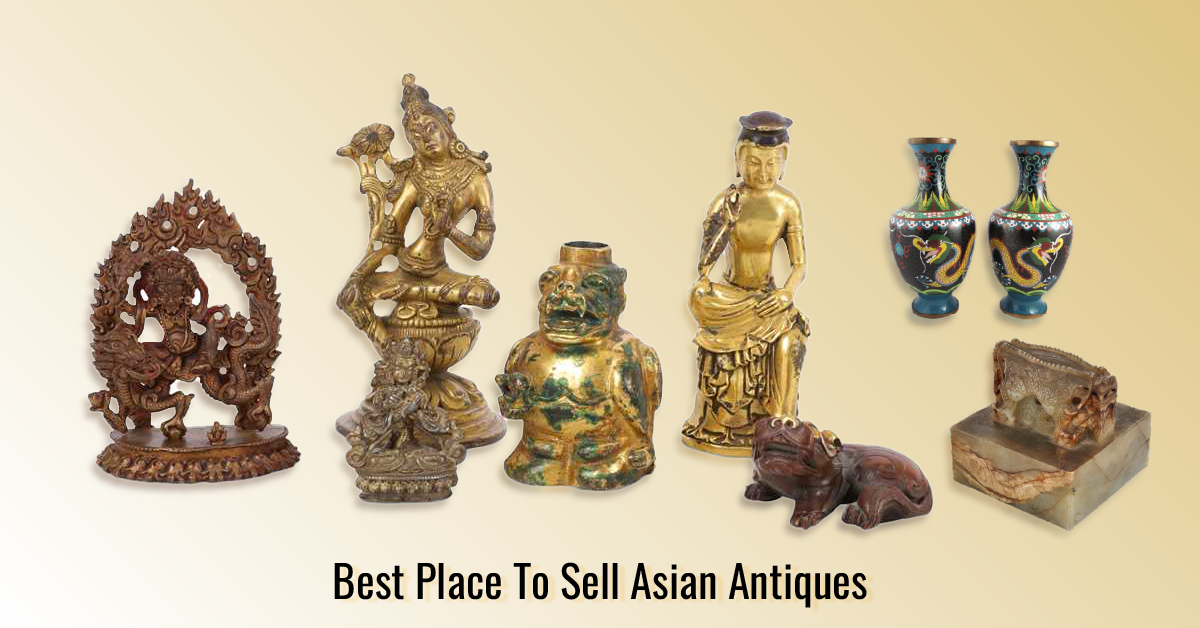
Do a little research yourself. Find out, if possible, some history on your Asian antiques. The origin, age, condition, and nature of the item will make a big difference in the selling price you will get for it. The more you know, the more the ball is in your court rather than vice versa.
While you can opt to go to vintage shops, you’d do best to find an appraiser who mentions that they specialize in Asian antiques on their website or has an acknowledgment of Chinese antiques somewhere in their advertising. Chinese antiques are a special field within antique buying and not just every antique dealer is qualified to give you a fair price for them because they may not adequately appraise them for lack of knowledge.
Where to sell Asian antiques is a personal choice. Whatever you do though, make sure you sell to the Chinese antique buyers that gives you the most for your treasure and who treats you with the respect you deserve.
If you are looking for an expert Asian antique buyers in the Connecticut area, be sure to check out Antique Appraisers Auctioneers for the best prices paid in the industry.
How to Sell Antiques: Tips from Expert “Antique Appraisers & Auctioneers”
An antique can address different things to different people. It might represent a piece of history that has been preserved to continue to be appreciated in the present. It might have a great deal of sentimental value and represent the family history and departed loved ones. A fine antique can be seen as a thing of artistic beauty that will enhance the décor of a room. It might be simply a valuable item that can be sold for money. Once you have decided to sell your antiques, you have to determine the value of it and find a buyer for them. That is when you might start wondering how to sell antiques and start looking for tips from antique experts.
Know the Value of Your Antiques
Experts will tell you that you should know the value of your antiques before selling them. That’s when it is a good idea to begin by finding antique experts who can appraise your antiques. They will consider a number of factors when determining value. These factors include the condition of the item, whether it has been restored, whether it bears a manufacturer’s mark, the provenance, how rare it is, and (perhaps above all) how much demand there is for the item among antique buyers. Once you have an expert opinion on the value of your antiques you will be in a good position to get the best price when you are selling.
Where to Sell Antiques
When you start to look around you will see that there a number of places where you can sell your antiques. Below there is an outline of the places that antique experts and antique buyers use when they are looking to buy or sell antiques.
Sell Antiques Online
One of the most obvious places that antique sellers and buyers turn to in today’s digital age is the internet. A simple search will enable you to cast a net that will capture results showing a wide range of reputable antique dealers. Depending on where you live, you may feel a little overwhelmed by how many search results you receive. You can begin to research the various stores and individual buyers who pop up in your search engine results to find someone who might be the right buyer for your family heirloom. If you do receive a lot of results it can also be helpful to narrow them down by focusing on the type of antique you are selling. Selling online also lets you connect with buyers from around the world.
Get Tips on Where to Sell from an Expert
We already discussed the importance of consulting antique experts before selling and getting an appraisal. When you have the appraisal done you can ask the expert for tips about where to sell as well. They can point you in the direction of reputable antique dealers who might be interested in your piece. They know the secrets of where to sell.
Auctions are Great Places to Sell Antiques
Auctions are obviously a great place to sell antiques. Antique experts and buyers see auctions as a great place to meet other buyers and sellers and check out an array of antiques. Attending auctions can help you make connections and get advice about selling antiques. They are often the best places to sell antiques and also the best place to meet someone who might be interested in buying your antique, even if you aren’t selling anything at the auction itself.
If the auction contains items similar to what you are selling, you can also get a clearer idea of your item’s value and how you can present it when you try to sell it. Since different antique buyers attend the auction, you will have the opportunity to talk to a number of potential buyers about your antique. They know what the market for your item is and may be able to connect you with someone who will be interested in buying it.
A final tip from antique experts, antique shows can be a great place to find antique buyers for the same reasons!
Local Antique Appraisers: How to Find a Reputable Antique Appraiser near Me?
If you have an antique, it is always important to know its value. Whether you want to sell or keep an antique or collectible, knowing the exact value is important for insurance and other purposes. Experienced antique appraisers will help you ascertain the true value of your antique but where can you find them? We will consider few ways you can get in touch with local antique appraisers near you:
Attend Local Appraisal Fairs
There must be fairs near you that feature local antique buyers; attending such shows can be an opportunity to meet reputable antique appraisers near you. You can connect with the appraisers and have them inspect and evaluate your item.
Related Blog – Selling Gold and Silver: 4 Rules for Dealing with Antique Buyers
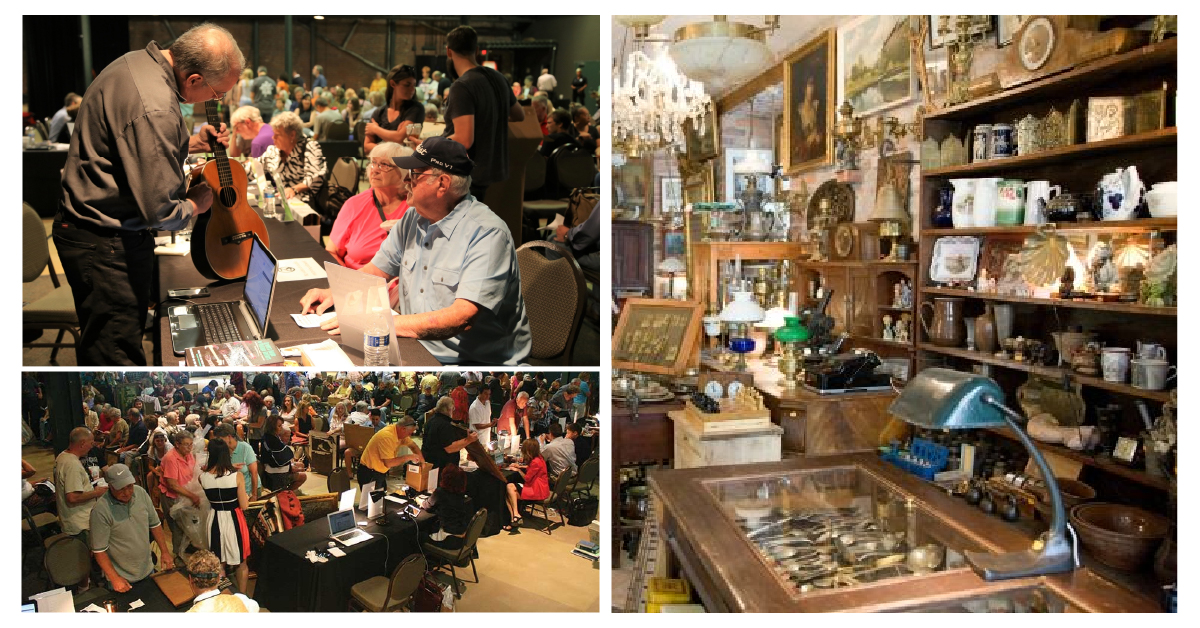
Search for Appraisers Online
We are in the digital age and almost all businesses have online presence. You can search the web for antique appraisers near you and study their website and other digital platforms closely to see if they have good reputation. Some of the expert appraisers can even evaluate your items if you can send detailed photographs of them.
Contact Reputable Antique Buyers
The best antique buyers around you will likely have highly reputable appraisers in their teams. From years of experience dealing with antiques and collectibles, these antique experts are always able to estimate what you have and communicate the true value. Most of them will also help you when you want to buy or sell antiques.
Important Tips to Consider
Antiques are precious and you need to be sure of the exact value of what you have: this is why you need a reputable antique appraiser. Keep the following tips in mind when looking for one:
- Work with antique appraisers that have experience
- Look for antique dealers that have several antiques in their collections
- Take your time to make a decision and avoid antique dealers that rush things.
It is very likely that there are several antique dealers and appraisers near you but it will take some efforts to find reputable ones. The tips above will help you in your quest for reputable ones to interact with.

